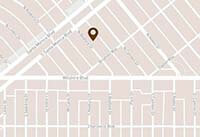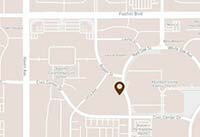Gastric sleeve surgery is a life-changing procedure for many individuals struggling with obesity. By drastically reducing the size of the stomach, this operation not only helps patients eat smaller portions but also supports long-term weight loss. However, as with any medical procedure, it comes with its own set of challenges and risks. One concern that arises post-surgery is stomach stretching, which can potentially compromise the effectiveness of the procedure.
This article explores the risks associated with stomach stretching following gastric sleeve surgery, its impact on weight loss, and practical strategies to prevent it. By understanding the science behind this phenomenon and adopting mindful post-surgical habits, patients of Davtyan Medical Weight Loss and Wellness—or any clinic—can maintain the full benefits of their surgery.
What Is Stomach Stretching After Gastric Sleeve Surgery?
How Does Gastric Sleeve Surgery Work?
Gastric sleeve surgery, or sleeve gastrectomy, is a bariatric procedure that removes approximately 75-80% of the stomach. The remaining portion is shaped into a sleeve or tube, significantly limiting food intake and suppressing hunger due to hormonal changes (notably a reduction in ghrelin, the “hunger hormone”). This smaller stomach pouch is highly effective in aiding weight loss.
What Is Stomach Stretching?
Stomach stretching refers to the gradual expansion of the stomach pouch over time, which can occur if dietary guidelines are not followed or due to natural healing processes. While some stretching is expected as the body adjusts to the intervention, excessive stretching can affect a patient’s ability to control portion sizes, potentially leading to weight regain.
This issue underscores the importance of ongoing vigilance and healthy habits following gastric sleeve surgery.
Risks of Stomach Stretching After Gastric Sleeve Surgery
Even moderate stomach stretching can have significant consequences for a patient’s weight loss progress, long-term health, and overall quality of life.
1. Reduced Restriction
The initial effectiveness of the gastric sleeve relies on limiting the amount of food the stomach can hold. If the stomach pouch stretches significantly, it can accommodate larger meals, leading patients to consume more calories than intended. Over time, this can erode the very foundation of the surgery’s success.
2. Weight Regain
One of the most critical risks associated with stomach stretching is weight regain. If portion sizes increase and eating habits revert to pre-surgery behaviors, patients may experience a plateau or even an upward trend in their weight. Unfortunately, significant weight regain can bring back the health risks previously alleviated by the surgery, such as diabetes, hypertension, and joint problems.
3. Emotional and Psychological Impact
For many patients, gastric sleeve surgery is a hopeful step toward healthier living. Weight regain caused by stomach stretching can lead to feelings of disappointment, failure, and frustration. These emotions can make it more challenging to stick to a healthy lifestyle and may even result in disordered eating patterns.
4. Surgical Risk in Extreme Cases
Severe stomach stretching may necessitate corrective procedures. Revisional weight loss surgeries, while effective, come with their own risks and complications. Prevention remains the best approach to managing this potential problem.
What Causes Stomach Stretching?
Several factors can contribute to stomach stretching post-surgery. Being aware of these risks allows patients to take proactive measures.
1. Overeating
The most common cause of stomach stretching is consistently eating beyond the stomach’s capacity. This can happen when patients fail to recognize the new signals of satiety or ignore the dietary guidelines provided by their healthcare team.
2. Drinking While Eating
Consuming liquids alongside solid foods increases the pressure on the stomach, encouraging it to expand over time. This is why many surgeons recommend avoiding drinking fluids about 30 minutes before and after meals.
3. High-Calorie Liquid Diets
While liquid calories (e.g., sugary drinks or creamy soups) may pass through the stomach pouch quickly, they still deliver a high amount of energy, which can contribute to weight regain. Additionally, reliance on calorie-dense liquids may circumvent the benefits of portion control provided by the smaller stomach.
4. Lack of Follow-Up Care
Regular follow-up appointments with a bariatric specialist are crucial for long-term success. Patients who skip these check-ins may not address bad habits or physiological changes early, increasing the risk of stomach stretching.
5. Natural Healing Process
It is important to note that some degree of stomach stretching is inevitable. The stomach tissue naturally heals and relaxes after surgery, allowing for slightly larger meals compared to the immediate post-op period. However, excessive stretches are preventable with proper care.
How to Prevent Stomach Stretching After Gastric Sleeve Surgery
Preventing stomach stretching requires discipline, planning, and collaboration with your medical team. Below are practical strategies to help patients maintain the effectiveness of their gastric sleeve surgery.
1. Follow Your Dietary Guidelines
The most important factor in preventing stomach stretching is adhering to the diet plan provided by your bariatric team. Post-surgery diets generally progress through phases, beginning with clear liquids and gradually reintroducing soft and solid foods. Stick to these guidelines to avoid overloading the stomach.
2. Eat Small, Frequent Meals
Rather than three large meals, aim for 5-6 small meals throughout the day. Eating small portions helps prevent the stomach from being overstretched while keeping hunger levels in check.
3. Chew Slowly and Mindfully
Take the time to chew each bite thoroughly and pace yourself. Rushed eating can lead to overeating and stretch the stomach pouch. Eating slowly allows your body to signal fullness before you consume excess calories.
4. Avoid Drinking with Meals
Separate your food and beverages to reduce pressure on your stomach during meals. Ideally, stop drinking liquids at least 30 minutes before eating and wait another 30 minutes after finishing your meal to resume hydration.
5. Focus on Protein and Fiber-Rich Foods
Protein and fiber are both essential for maintaining satiety and sticking to portion control. Lean meats, legumes, fruits, and vegetables are excellent options for filling you up without overeating.
6. Stay Hydrated, But Wisely
Dehydration can sometimes be mistaken for hunger. Make sure you drink plenty of water throughout the day—but as mentioned above, not with meals.
7. Engage in Regular Physical Activity
Exercise not only supports weight maintenance but can also improve your body’s metabolism and overall health. Choose activities that you enjoy and make them a regular part of your routine.
8. Attend Follow-Up Appointments
Scheduling regular check-ins with your bariatric specialist ensures that your progress is on track. These visits allow for early detection of potential problems, including signs of stomach stretching or weight regain.
9. Join a Support Group
Connecting with others who have undergone gastric sleeve surgery can provide motivation and accountability. Many patients find that sharing experiences helps them stay committed to their goals.
Restarting Your Weight Loss Journey with Davtyan Medical Weight Loss and Wellness
Gastric sleeve surgery is just the start of a lifelong commitment to healthier habits. By understanding the risks associated with stomach stretching and adopting these preventive practices, you can ensure that you maximize the benefits of your procedure.
At Davtyan Medical Weight Loss and Wellness, we offer personalized support and guidance to help you maintain your success. From dietary advice to post-op care, our team of experts is here to assist you every step of the way. Schedule a consultation today and take the first step toward a healthier, happier you.






















